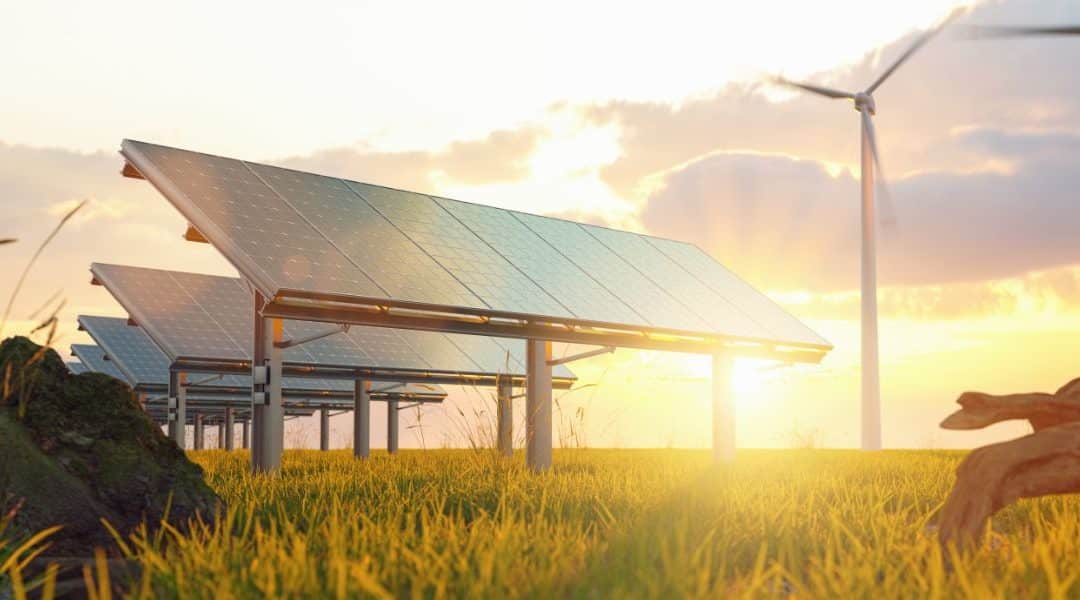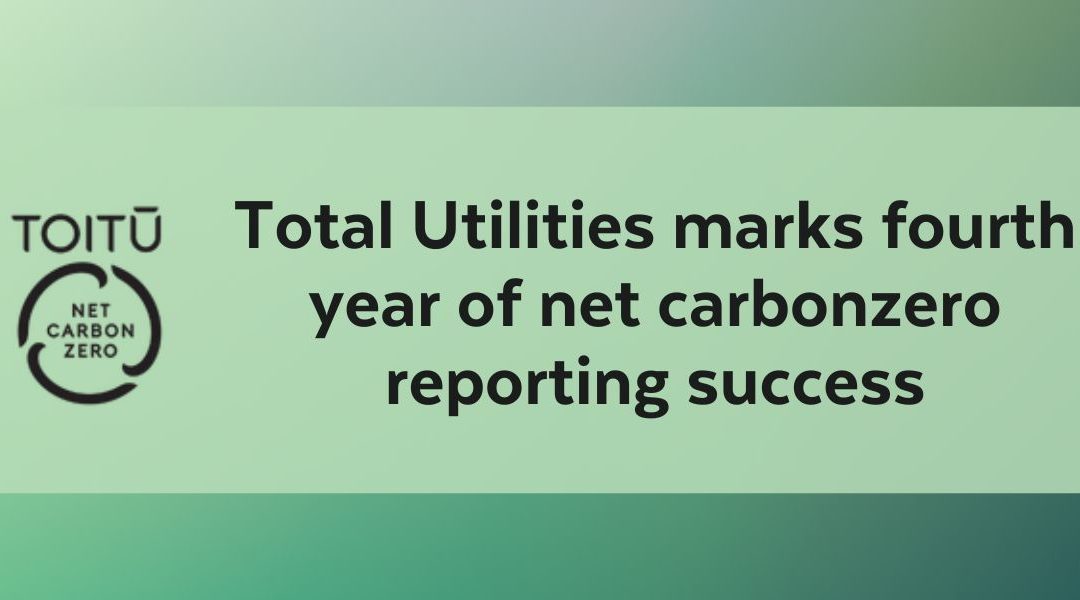
by Chris Hargreaves | Dec 6, 2023 | News, Sustainable Business, Waste
Welcome Pravind Singh, our new Sustainable Business Improvement Manager, spearheading our mission to create a greener business landscape! Discover how Pravind and Total Utilities can transform your business’s waste management by booking your free waste consultation today!
With an impressive background in sustainability, waste management, recycling and accounting, Pravind will be leading the charge as we continue to develop and refine our waste reduction service offerings.
He arrives brimming with experience and is dedicated to steering your business toward a greener, more efficient future.
Solutions-focused approach
Pravind’s mission is clear: to help businesses like yours save money while embracing eco-friendly practices.
His knack for connecting with people and his solutions-focused approach have been instrumental in transforming projects, aligning them with sustainability goals, and delivering impressive, measurable results.
In his previous roles as Key Account Manager for both Waste Management and Reclaim, Pravind demonstrated exceptional acumen in transforming projects, yielding both significant savings and innovative solutions.
At Total Utilities, Pravind will oversee and optimise waste services and initiatives for the business, including waste reviews, managing waste RFPs, conducting audits, integrated waste reporting, and handling commercial cleaning services RFP management.
Passionate about impact
“I’m excited to be joining Total Utilities on a permanent basis,’ says Pravind. “I’ve been contracting with the team for many years now, so this is a chance to apply my industry background and waste and recycling experience to make a real impact.”
“My passion lies in connecting with people and delivering results that drive savings, promote sustainability, and reduce waste.”
“Understanding each client’s unique needs allows us to tailor strategies that truly benefit each business, ensuring the best results that meet or exceed their objectives,” he adds.
Outside of the office, Pravind wears many hats! He’s not just a committed family man with a wife and young daughter, but he is also deeply involved in his local community.
A past president of Rotary Club, he also keeps himself busy volunteering at Hospice, serving as a Justice of the Peace and mentoring a school entrepreneurial programme! He enjoys honing his public speaking skills, and connecting with people at every level.
How Total Utilities Can Help
Total Utilities is dedicated to assisting you in reviewing your current waste contracts, focusing on pricing, efficiencies, and diversion rates. We offer advisory services to help you evaluate your options and find solutions for increased diversions, enabling you to make informed decisions about your waste contracts.
By staying proactive and informed, you can better manage your waste contracts, optimise costs and efficiencies, and make strategic decisions for your business’s future.
Discover how Total Utilities can help you streamline your Waste Procurement, reduce costs, and provide comprehensive reporting.

by Chris Hargreaves | Nov 14, 2023 | Energy, News, Sustainable Business
These days, embracing sustainability is not only a vital choice, it’s a game-changing strategy! At Total Utilities, we help businesses like yours optimise, reduce costs, and contribute to a greener world every day.
We understand the hurdles businesses face, and are well-equipped to guide you towards a future where efficiency meets sustainability. Our customer-centric approach ensures that your business not only embraces eco-friendly business practices, but also reaps the tangible rewards.
Advantages tailored to you
Every business is unique and that’s why our services are carefully tailored to meet your specific needs. By leveraging data-driven insights, we empower you to optimise your operations, reduce costs, and make meaningful contributions to environmental conservation.
Let’s look at four major ways Total Utilities can help make sustainability a compelling and advantageous choice for your business:
COST EFFICIENCY & SAVINGS
We pinpoint areas for improvement, negotiate highly competitive contracts with our procurement service, and implement strategies that lead to substantial cost reductions. Your bottom line matters, and we’re dedicated to enhancing it. Our services include:
– Conducting comprehensive utility audits: Evaluating and optimising your current utility expenses.
– Identifying energy optimisation measures: Eliminating unnecessary energy consumption.
– Negotiating competitive strategic contracts: Securing cost-effective utility contracts tailored to your business needs.
SUSTAINABLE PRACTICES WITH REAL IMPACT
Contributing to a greener world is a shared responsibility. Choosing Total Utilities means actively choosing and engaging in sustainable business practices. Our tailored services include quantifying your carbon footprint and recommending carbon measures to decarbonise your business. With us you can:
– Track and reduce your carbon footprint: Utilising our advanced tools to measure, analyse and reduce carbon emissions.
– Integrate energy-efficient practices: Implementing technologies and strategies for reduced energy consumption.
– Establish a waste reduction programme: Comprehensive and cost effective waste reduction and recycling initiatives.
INTEGRATE SERVICES WITH THE FLEXIBILITY TO START SMALL
We understand the complexities of modern business and that’s why you can bundle up our services any which way you like, with tailored, hassle-free, and seamless integration! Begin with one service and add on others as your sustainability journey progresses. For example:
– Start with utility procurement
– Add on carbon measurement and reduction with our Carbon Insights service
– Add on a waste audit.
EXPERT GUIDANCE & CONTINUOUS SUPPORT WITH CLEAR ACTIONS
Total Utilities not only provides compelling services, but our seasoned experts are dedicated to helping you make informed decisions with straightforward, practical advice.
– Engage in expert training sessions: Helping you interpret utility data and explore cost and carbon savings.
– Benefit from dedicated support: Tailored suggestions for continuous improvement based on your unique business needs.
– Manage regulatory risks: Expert guidance to ensure your business’s sustainability responsibilities are always met.
– Support with Greenhouse Gas Emissions Programmes: Helping you disclose your emissions and drive for continuous improvement.
Your success is at the heart of all that we do. We are not just service providers, but we are your partner in sustainable growth.
Let’s unlock the potential of data-driven sustainability to make your business more efficient, environmentally responsible and economically robust.
Contact Total Utilities today and discover how our services can empower your business towards an extraordinary future of sustainable success.

by Chris Hargreaves | Nov 14, 2023 | Energy, New Zealand Energy Certificates, News, Sustainable Business
Contributed by Paul Coster, Founder of EVA Marketplace
As businesses navigate the need to slash fossil fuel usage, the burning question is: can backing renewables be both a pragmatic commercial decision and contribute to climate action?
Some businesses may be surprised that while Aotearoa’s electricity is ~85% renewable, our energy consumption is only ~30% renewable. This means around 70% of New Zealand’s energy consumption is met by burning gas, oil and coal, mainly for transport, heat and electricity production.
So, how do businesses burn less fossil fuel, and therefore meaningfully contribute to climate action? There are three main options:
-
- Eliminating or reducing fossil fuel use (e.g. reduce air travel, encourage active and public transport)
- Increasing energy efficiency (e.g. improve building insulation)
- Supporting renewable energy
In this article, I’m going to focus on ‘supporting renewable energy’, which is a more nuanced topic than you might think. Currently, there are two climate-friendly options for New Zealand businesses to support renewable energy:
- Demand response: consume more electricity when renewables are plentiful, and less when gas and coal-fired generation is running.
- Additional renewables: procure electricity in a way that helps to add more renewables to the electricity system.
At this juncture, I need to briefly discuss three other commonly discussed renewable energy options:
- Green hydrogen (hydrogen made from renewable electricity)
- Biogas and biomethane
- Woody biomass
Globally, green hydrogen is in its early stages and, in New Zealand, biogas and biomethane are in their infancy. Currently, woody biomass is primarily used in the wood, pulp, and paper sectors, where harvest residuals are readily available (*1).
Experts and scientists are cautious about the scope of these fuels in the clean energy transition due to issues such as: green hydrogen’s inefficiency compared to direct electrification of heat and most land transport (*2), the challenging economics of large-scale biogas/biomethane production in New Zealand (*2), and elevated CO2 emissions over decades created by burning woody biomass produced from whole trees (*3 & *4). In my view, woody biomass production should be limited to harvest residuals, and priority given to its use as energy storage to address electricity shortages.
Ok, returning to demand response and additional renewables:
Demand response
Demand response (also called ‘load shifting’) is the shifting of electricity consumption into periods of time when renewables are plentiful (and out of periods of time when it’s scarce), and was discussed last month by Andy Cooper from The Energy Collective.
Andy explained how businesses can use demand response to save money, reduce scope 2 carbon emissions, and help defer costly investment in the electricity network. He also discussed current limitations of Renewable Energy Certificates (RECs), also called Energy Attribute Certificates (EACs).
Additional renewables
It’s necessary to support additional renewables such as wind and solar, otherwise new electricity demand (e.g. EVs, heat pumps) will need to be met by gas or coal-fired generation.
According to the Climate Change Commission, Aotearoa needs approximately an additional 1,000 GWh of renewable electricity every year between now and 2030 to meet our climate targets. That’s around 2.5% of New Zealand’s annual demand (~40,000 GWh), roughly equivalent to 300 MW of wind or 550 MW of solar, every year.
So, how can businesses help add renewables to New Zealand’s energy system? Impactful and readily available solutions for businesses are:
- On-site renewable generation (e.g. rooftop solar)
- Corporate Power Purchase Agreement (PPA) (*5) with a renewable generation project (i.e. a business buys electricity directly from a generation project)
- Indirect PPA with a renewable generation project (i.e. a PPA entered into by an electricity retailer on behalf of a business)
- Electricity supply agreement (*6) linked to a renewable generation project
Businesses can combine these solutions, such as having on-site generation, a corporate PPA and an electricity supply agreement. Combining a PPA with a supply agreement is called PPA ‘sleeving’. For all solutions, businesses retain a relationship with an electricity retailer.
In Part 2, I’ll look at each solution in detail, discuss their pros and cons, and explain why solutions 1 and 2 tend to be the most impactful. I’ll also discuss the important role played by RECs, or EACs, explaining why these certificates should be used in most cases.
These posts are my current thinking, which I hope opens up more discussion about the impact businesses can have on Aotearoa’s clean energy transition.
—
About Paul Coster
Paul is the Founder of EVA Marketplace, Aotearoa’s marketplace for renewable PPAs. EVA assists businesses by matching them to renewables projects, facilitating PPA negotiations, supporting green products (including RECs/EACs) and enabling corporate PPA sleeving. EVA also publishes a quarterly report on the renewables market.
Total Utilities works with EVA to offer customers the option of a corporate PPA sleeved into their electricity supply agreement, helping to control electricity costs and ethically reduce carbon emissions, while retaining the convenience of an FPVV supply arrangement.
* References
- Biomass energy in New Zealand, EECA
- 2023 Draft advice to inform the strategic direction of the Government’s second emissions reduction plan, Climate Change Commission
- Why burning trees for energy harms the climate, World Resources
- 500+ scientists tell EU to end tree burning for energy, WWF
- PPAs tend to be longer term contracts (5 – 15 years) where a buyer commits to buying electricity from a specific project, such as a solar farm, usually at a fixed price.
- Electricity supply agreements tend to be shorter-term contracts (1-5 years) where buyers purchase electricity from a retailer for their sites or buildings, typically at a fixed price.

by Chris Hargreaves | Oct 9, 2023 | News, Sustainable Business
Total Utilities is proud to announce the successful completion of its fourth year of reporting under the prestigious Toitū net carbonzero programme, achieving an outstanding 75% reduction in emissions since its inaugural year, and a pleasing 56% decrease on 2022.
These results underscore our ongoing commitment to environmental responsibility and our proactive approach to carbon emissions reduction. They reflect our determination to align our actions with our environmental goals, showcasing our dedication to sustainable business practices.
Impressive emission reductions: a stride towards sustainability
Since commencing the Toitū programme in 2019 with baseline emissions of 20.72 tonnes of carbon dioxide equivalent (tC02e), Total Utilities’ most recent audit confirmed a substantial reduction of 5.17 tC02-e last year.
Jonathan Gardiner, Managing Director of Total Utilities, attributes our success to strategic initiatives including a reduction in business travel and careful monitoring of transport fuel consumption for private car use.
“However, we do acknowledge the challenges that lie ahead of us as a business as we look to relocate offices in the upcoming year,” says Jonathan. “This could present new challenges, with the business needing a larger space that will likely require increased energy.”
Total Utilities is eager to mitigate the impact of any changes by actively seeking an office located close to a railway station, which will improve staff commute options and align with the company’s ongoing commitment to reduce its footprint.
“We are proud of the significant strides we’ve made in reducing our carbon emissions so far,” continues Jonathan. “It’s a testament to our team’s dedication and the effectiveness of our sustainability strategies.”
“As we move forward, we are fully committed to environmental responsibility and exploring innovative solutions to further minimise our impact on the environment. We encourage all businesses to get onboard and start on their own decarbonisation journey.”
Partner with us to position your business as a green leader
Managing your carbon footprint comes with numerous benefits including heightened efficiency, reduced costs, and future-proofing your business.
Total Utilities offers a comprehensive suite of services for measuring and reducing your carbon footprint. Our recently launched ‘Carbon Insights’ service enables businesses to supercharge their sustainability goals with advanced AI-powered carbon management, optimising carbon reduction and efficiency.
With carbon measurement and reduction strategies in place, it is then well worth exploring achieving carbon accreditation standards such as those achieved by us with Toitu. Accreditation will help position your business as a green leader and open doors to new opportunities in a sustainability-focused market place.
Join us now in shaping a greener, more sustainable future, and together we can drive real change in the business landscape.

by Chris Hargreaves | Sep 29, 2023 | News, Sustainable Business
[Auckland, New Zealand, 2 October 2023] – Total Utilities, a leading provider of utility management, carbon measurement and reduction services, is thrilled to announce its groundbreaking new Carbon Insights service – designed to help businesses achieve their sustainability goals up to 10 times faster.
Carbon Insights integrates Total Utilities’ carbon expertise with Net0’s advanced Al carbon management platform to deliver a cutting edge, fast-track carbon management solution.
This exclusive collaboration between Total Utilities and Net0 is poised to accelerate and simplify carbon management and reduction for businesses across New Zealand.
A Leap in Carbon Management
Measuring carbon footprints can be a daunting task for businesses with challenges including lack of standardised methodologies, supply chain complexities, data reliability issues, financial constraints, or simply not knowing where to begin.
Total Utilities understands these obstacles and is dedicated to helping businesses overcome them while encouraging wider participation in carbon management programs.
Director of Total Utilities Chris Hargreaves explains, “Carbon Insights enables us to streamline data collection, reporting, target setting, and progress tracking for customers in a cost-effective package. Our goal is to make the journey to net zero faster and more accessible for businesses across New Zealand.”
“While Carbon Insights utilises advanced AI technology, it remains user-friendly and its design allows it to be used in byte-sized, actionable chunks,” highlights Chris. “It is a compelling proposition for customers, empowering them to take control of their carbon emissions.”
Accelerate Sustainability Goals
Carbon Insights offers a complete Carbon Footprinting service, which enables business customers to get a clear view of their current emissions profile in order to guide strategic decisions across the business.
Establishing a business’s carbon footprint can help kickstart enhanced profitability by uncovering hidden inefficiencies and untapped cost-saving opportunities.
Carbon Insights then helps businesses expertly track, reduce and report carbon emissions, in order to accelerate sustainability goals and streamline carbon measurement for enhanced efficiency and profitability.
The service offers businesses a range of features and levels tailored to their needs and budget. It seamlessly integrates with existing accounts and ERP (Enterprise Resource Planning) systems, ensuring a smooth transition.
Showcasing Green Commitment
With research pointing to the fact that the majority of consumers want to support environmentally and socially responsible customers, Carbon Insights by Total Utilities can help position businesses as green leaders by showcasing their commitment to carbon reduction and sustainability.
This exclusive partnership with Net0 underscores Total Utilities commitment to removing barriers to carbon reduction, driving positive change, and creating a cleaner, greener future for New Zealand.
To learn more about Carbon Insights and Total Utilities’ range of carbon reporting tools and services, please visit www.totalutilities.co.nz.
About Total Utilities: Total Utilities is a leading provider of utility management, carbon measurement and reduction services, offering innovative solutions to help businesses optimise their utility usage, reduce their carbon footprint, and achieve sustainability goals. With a customer-centric approach and a comprehensive range of services, Total Utilities empowers clients to navigate the complexities of carbon management and drive positive change.
About Net0: Net0 is an innovative carbon management platform that enables businesses to measure, reduce, and disclose their carbon emissions with ease. With advanced AI technology and a user-friendly interface, Net0 simplifies carbon tracking and reporting, empowering businesses to accelerate their journey towards a net-zero future.
Media Contact:
Jonathan Gardiner,
Managing Director, Total Utilities
E: [email protected]
M: +64 21 265 8379

by Andy Cooper | Sep 19, 2023 | News, Sustainable Business
In a world where businesses are increasingly committed to reducing their carbon footprint and embracing sustainability, the concept of ‘load shifting’ has emerged as a powerful and practical solution.
Load shifting, a strategy that focuses on optimising power consumption during specific times of the day, offers numerous advantages that not only benefit the environment but also boost cost-efficiency.
If you want to have a positive impact on the environment, you should think about changing behaviour. Load shifting can allow you to make a meaningful difference, and it will save you money.
Unlocking savings while helping the environment
 Load shifting is essentially the practice of adjusting power consumption to align with periods of lower carbon production. By doing so, businesses reduce their reliance on fossil fuel-based energy generation and minimise the need for costly infrastructure to cope with peak demand.
Load shifting is essentially the practice of adjusting power consumption to align with periods of lower carbon production. By doing so, businesses reduce their reliance on fossil fuel-based energy generation and minimise the need for costly infrastructure to cope with peak demand.
Peak demand typically occurs in the morning and evening when consumer loads surge, such as when people prepare breakfast and run household appliances. The good news is that power costs less during off-peak hours, offering a significant opportunity for cost savings.
On a larger scale, load shifting can contribute to substantial carbon emissions reduction, impacting both wholesale energy costs and infrastructure investments.
Understanding peak and off peak times
The exact times may differ between plans for small commercial customers, but generally speaking, peak times are Monday to Friday, 7am to 11am and 5pm to 9pm.
How providers choose to offer their off-peak electricity differs. While some opt to provide cheaper rates at any time outside of peak hours, others opt for a day/night plan. On these plans, you only get off-peak electricity rates during the night (11pm to 7am).
 Some electricity providers offer three different rates of power, in the form of peak, off-peak and night rates (with nights being the cheapest). Other providers may refer to it as peak, off-peak shoulder, and off-peak. But the principle remains the same: you get cheaper rates during the day and weekends, and the cheapest rates overnight.
Some electricity providers offer three different rates of power, in the form of peak, off-peak and night rates (with nights being the cheapest). Other providers may refer to it as peak, off-peak shoulder, and off-peak. But the principle remains the same: you get cheaper rates during the day and weekends, and the cheapest rates overnight.
Large commercial customers have time of use pricing which has a clear pricing schedule priced in 4 hour blocks during the day. This makes it easier for end users to see when peak periods are.
A Sustainable transition to local renewable energy
As economies transition toward electrification, matching energy demand with clean, locally produced renewable energy becomes paramount. This transition promises to replace offshore, dirty energy sources with more affordable, locally generated renewable power.
Achieving this goal relies on active participation from businesses, innovation within the energy industry (such as automation of electric vehicle charging and battery control), and transparent information sharing with consumers.
A word on certified renewable energy and & offsets
In the quest to reduce carbon emissions, it’s crucial to recognise that purchasing offsets and renewable energy certificates doesn’t cut emissions immediately like load shifting does. Buying offsets merely shifts the carbon burden elsewhere without reducing a company’s actual emissions.
Load shifting offers a real-time solution. By using more power when cleaner sources like hydroelectricity dominate, businesses can lower costs and cut emissions directly. This approach reduces the reliance on fossil fuels, especially during high-demand periods when coal is prevalent, negating the need for costly offsets.
While certificates and offsets have a role, they’re mainly for handling unavoidable emissions. Businesses should prioritise behavioural and efficiency changes to reduce emissions first.
Practical load shifting steps for business
While load shifting is not as simple as purchasing offsets or certified renewable energy, it’s far more attainable than it may initially seem. Businesses can take several practical steps to implement load shifting strategies within their operations.
Simple actions such as adjusting thermostat settings, employing timers for equipment, or optimising refrigeration systems during peak periods can make a significant difference.
Moreover, businesses can explore emerging technologies designed to automate load shifting, making it even more accessible.
By embracing load shifting, businesses can secure substantial cost savings while genuinely benefiting the environment.
Load shifting stands as a powerful strategy for companies committed to making a positive impact on both their bottom line and the planet.
It encourages a shift in behaviour that aligns with the global push towards sustainability, allowing businesses to play a pivotal role in a greener, smarter future.
- Andy Cooper is the Chief Customer Officer from The Energy Collective. Through Total Utilities’ robust collaboration with the Energy Collective and other leading energy retailers, we are empowered to provide our customers with exceptionally competitive pricing.








